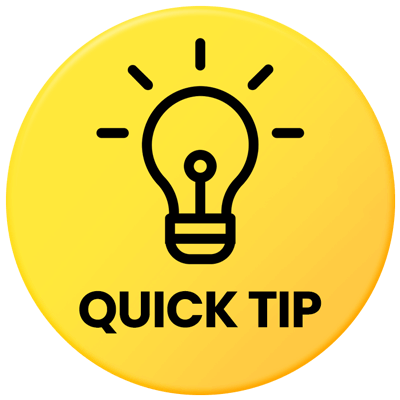Brainzyme® FOCUS™ Alternatives: An In-Depth Look at Options
Avery Walker - 25 April 2025
[Reading Time: 5 minutes]

Brainzyme® FOCUS™ is a popular supplement for enhancing mental performance, but there are also natural ways to boost your brain power and productivity.
This article explores several effective options, such as exercise, diet, binaural beats, and meditation. We'll discuss the benefits of each and provide tips for getting started.
While these natural methods can be very helpful, we'll also touch on how Brainzyme® FOCUS™ compares for those seeking an additional cognitive edge. By the end, you'll have a better understanding of your options for naturally supporting your brain to be at its sharpest.
Contents
- Exercise as an Alternative to Brainzyme® FOCUS™
- Diet as an Alternative to Brainzyme® FOCUS™
- What are Binaural Beats for Concentration?
- How to Use Meditation for Concentration?
- How Helpful are these Alternatives to Brainzyme® FOCUS™?
- What You Need to Know About Brainzyme® FOCUS™
- Conclusion
Exercise as an Alternative to Brainzyme® FOCUS™
Regular exercise is one of the best natural ways to boost your brain power. Even moderate activity a few times a week can increase blood flow to deliver oxygen and nutrients to the brain. It also promotes the growth of new brain cells and connections. Exercise is great for improving memory, thinking skills, and mood.
If you're new to exercising, start small with mini workouts and build up over time. Look for easy ways to add more activity to your existing routine, like walking to do errands instead of driving. Making it social by exercising with a friend can help with motivation and consistency.

Overall, exercise is an accessible natural option for better brain health and productivity that offers both short-term and long-lasting benefits. And there are endless ways to make it work with your lifestyle.
The key is to find activities you enjoy so it becomes a sustainable habit. Combined with other natural approaches and supplements as needed, exercise is a cornerstone for keeping your brain at its best.
Take our Quiz to find out which Brainzyme® FOCUS™ supplement you should try
Diet as an Alternative to Brainzyme® FOCUS™
The foods you eat have a direct impact on your brain function and health. Adopting a brain-friendly diet is another natural way to enhance your mental performance and productivity.
Two evidence-based options that have gained popularity are the ketogenic and Mediterranean diets. A ketogenic diet is low in carbs and high in healthy fats, which causes the body to burn fat for fuel. This metabolic state of ketosis has been shown to benefit brain function.
The Mediterranean diet is rich in fruits, veggies, whole grains, lean proteins, and healthy fats. It has long been associated with better brain health and a lower risk of age-related decline.

While the specifics of these diets differ, they share core principles of focusing on whole, nutrient-dense foods and limiting processed items and added sugars. A balanced diet provides the building blocks to optimise your brain.
Of course, always consult your doctor before making major dietary changes. And remember, supplements like Brainzyme® FOCUS™ can help fill in any nutritional gaps or provide an extra cognitive boost when you need it most.
Need an extra boost to your brain power in the short term? Learn more about all three of our formulas by checking out the Brainzyme® FOCUS™ Starter Bundle, or take advantage and save time by using a quick buy function.
Buying from the US? Learn more about all three of our formulas by checking out the Brainzyme® FOCUS™ Starter Bundle, or take advantage and save time by using a quick buy function.
What are Binaural Beats for Concentration?
Binaural beats are a fascinating way to alter your brain state for enhanced productivity naturally. Here's how they work: When you listen to two tones with slightly different frequencies in each ear, your brain perceives a third tone, called a binaural beat. The frequency of this beat can induce slower brain waves for relaxation or faster waves for focus and concentration.
There are four main brain wave patterns, each associated with different states:
- Delta waves (0.1-5 Hz): Deep, dreamless sleep
- Theta waves (4-8 Hz): REM sleep, meditation, creativity
- Alpha waves (8-13 Hz): Relaxation, learning, flow state
- Beta waves (14-30 Hz): Alertness, analytical thinking, problem-solving

Watch: Do Binaural Beats Work?? A doctor explains binaural beats
By listening to binaural beats in the alpha or beta range, you can naturally prompt your brain into a state of heightened focus. Binaural beats are a simple yet effective tool for optimising your mind—all it takes is a pair of headphones!

Brainzyme® FOCUS™ will give you a faster natural boost in cognitive function than just trying Binaural Beats If you want that quicker solution, check out our Brainzyme® FOCUS™ Starter Bundle to see which formula will suit you best. (Buying from the US? Click here)
How to Use Meditation for Concentration?
Meditation is a tried-and-true method for honing concentration and taming a busy mind. By training your attention and calming your thoughts, meditation can significantly boost productivity.
If you're new to meditating, guided apps like Headspace are a great place to start. Begin with just a few minutes a day and gradually increase the length of your sessions. The key is consistency—small amounts of regular practice add up to big brain benefits over time.
Studies show that meditation enhances focus, memory, and overall cognition. It can also lower stress and anxiety, increase resilience, and improve emotional regulation. Meditating puts you in greater control of your mind and mental state.
While establishing a meditation practice takes patience, it's a free and portable way to optimise your brain for peak productivity naturally. It can amplify the effects of other focus-boosting tools, from exercise to supplements like Brainzyme® FOCUS™.
How Helpful are these Alternatives to Brainzyme® FOCUS™?
Natural alternatives like exercise, diet, binaural beats, and meditation can meaningfully boost brain power and productivity. But they do have some limitations.
Not everyone can exercise regularly due to physical constraints. Overhauling your diet takes time and planning. While binaural beats and meditation work well, they require consistent use to yield major benefits.
For a fast-acting, targeted productivity boost, a supplement like Brainzyme® FOCUS™ can help—without the time commitment of making big lifestyle changes. It's a simple way to optimise brain performance quickly.
The most effective approach is combining natural methods with supplements as needed. This holistic approach supports your brain health from all angles to maximise mental performance and productivity.
What You Need to Know About Brainzyme® FOCUS™
Brainzyme® FOCUS™ is a line of plant-powered brain supplement formulas that quickly and safely enhance focus, energy, memory, and mood. They contain scientifically proven ingredients like herbs, vitamins, and minerals to optimise brain function.

The three formulas—Brainzyme® FOCUS ORIGINAL™, Brainzyme® FOCUS PRO™, and Brainzyme® FOCUS ELITE™—offer different levels of cognitive support to meet your needs. They're all vegan, allergen-free, non-GMO, and contain no artificial additives.
Brainzyme® FOCUS™ is an effective, convenient option for fast-acting cognitive enhancement. It's ideal for those who want a boost without relying solely on time-intensive lifestyle changes.
If you are still unsure about which Brainzyme® FOCUS™ formula would be best for you, you can check out the Brainzyme® FOCUS™ Starter Bundle to try all three!
Buying from the US? Click here: Brainzyme® FOCUS™Starter Bundle

If you want to try fast-acting natural supplements that are
- Affordable
- Effective
- And convenient
You can get 10% off your first purchase of any Brainzyme® FOCUS™ product! Use the code WELCOME10 when checking out.
Conclusion
Optimising your brain naturally involves a multi-pronged approach. A foundation of regular exercise and a balanced, nutrient-rich diet is key for lasting brain health and performance. Practices like listening to binaural beats and meditating can induce states of heightened focus and concentration as needed.
To enhance the effects of these natural methods or for a fast-acting boost, a nootropic supplement like Brainzyme® FOCUS™ can help. It provides key nutrients to optimise brain function and cognition quickly.
The most effective way to maximise your mental performance is by combining healthy habits with targeted supplements. This holistic approach supports your brain from all angles so you can be at your most productive.
Want to skip the trial and error and get that boost your brain needs now? You can do that by buying the Brainzyme® FOCUS™ Starter Bundle today.
Buying from the US? Click here: Brainzyme® FOCUS™Starter Bundle
Avery Walker

Avery Walker
Avery Walker is a professional journalist specialising in brain health and holistic approaches to everyday health concerns. They regularly contribute tips, advice, and findings to the Brainzyme® blogs.
A digital nomad currently based in Inverness, Avery loves to travel and meet new people from all walks of life.
References
Godman, H. (2014) Regular exercise changes the brain to improve memory, thinking skills, Harvard Health. Available at: https://www.health.harvard.edu/blog/regular-exercise-changes-brain-improve-memory-thinking-skills-201404097110 (Accessed: November 11, 2022).
Spritzler, F. (2016) How to boost your brain health with low carb and ketogenic diets, Healthline. Healthline Media. Available at: https://www.healthline.com/nutrition/low-carb-ketogenic-diet-brain#section3 (Accessed: November 11, 2022).
27, A. (2011) Dirt poor: Have fruits and vegetables become less nutritious?, Scientific American. Scientific American. Available at: https://www.scientificamerican.com/article/soil-depletion-and-nutrition-loss/ (Accessed: November 11, 2022).
Felson, S. (2020) Stages of sleep: Rem and Non-REM Sleep cycles, WebMD. WebMD. Available at: https://www.webmd.com/sleep-disorders/guide/sleep-101 (Accessed: November 11, 2022).
Mood claims are anecdotal.
Guaranteed SECURE Checkout
We use encrypted SSL security to ensure that your credit card information is 100% protected.
Click for more details

GUARANTEED DATA PROTECTION
We are registered with the UK's ICO (Information Commissioner's Office). The ICO is the UK’s independent authority set up to uphold information rights in the public interest, promoting data privacy for individuals.
Click for more details
365-DAY RETURNS & EXCHANGES
Our 100% satisfaction guarantee means you can try Brainzyme® FOCUS™ completely risk-free. Make returns or exchanges within 365 days.



 DACH
DACH
 FR-BE
FR-BE
 US-CAN
US-CAN